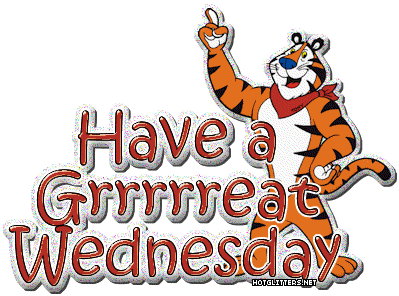![]()
WKMH: A BOB GREEN MEMORY WITH ANDY WILLIAMS
BILLBOARD * OCTOBER 1, 1955
WWWW COUNTRY PULLING GAINS OVER WCXI . . . AUGUST 22, 1981
 From the MCRFB NEWS archive: 1981
From the MCRFB NEWS archive: 1981
WWWW-FM RUNNING ‘100 MPH’ AGAINST WCXI-AM TO WIN COUNTRY RACE IN DETROIT
DETROIT — Dene Hallam, program director at WWWW-FM Country 106 claims the station is making strides in the latest Detroit radio ratings, and going against the competition in the market WWWW seemingly “always goes 100 miles per hour,” he says. That was just about fast enough to earn WWWW a 4.4 share in the latest Arbitron report, up from an invisible share, following a surprise format switch to country in January, 1981.
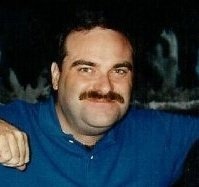
Hallam sees his station pulling an upset over WCXI-AM, an established country station, as more significant than just an upstart beating the competition at its own game. “I think ‘adult 25 to 54’ more than ‘country’ in programming the station. We’ve actually increased the country share of the market, rather than just take away listeners from ‘CXI,” Hallam claims.
“The country share of the Detroit market has traditionally hovered around 5.0. Now country stations have about an 8.4 share of the Motown market. When ‘CXI came on the scene, it devoured WDEE (now a religious station). We not only beat WCXI, we expanded the market share.”
The strategy appeared to be working, since WWWW rated no. 2 overall in Detroit among adults 25-54, beaten only by giant WJR-AM.
Workaholism is Hallam’s secret method to rocket to the top of the ratings. It’s not unusual for him to work 12-hour days, and he hopes the rest of the staff keeps up individually in attaining higher status and recognition where the station has been heading overall. He visits Nashville periodically, calling on artists, publishers, record companies and media reps. Locally, Hallam pays calls on retailers, scoping out the country singles section, even talking to customers, seeing what sells.
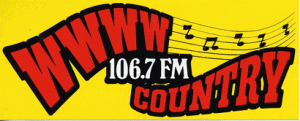 “Country never sold that well in Detroit, now its starting to sell. The other country stations have been basically MOR personality stations. My big question is, ‘Can I induce my audience to buy? That’s what we’re here for,” Hallam claims.
“Country never sold that well in Detroit, now its starting to sell. The other country stations have been basically MOR personality stations. My big question is, ‘Can I induce my audience to buy? That’s what we’re here for,” Hallam claims.
Hallam, in stating, claims he always had the bottom line in mind when he’s programming the station, and “it’s producing results for clients already.” Good thing, too, since WWWW lost almost all of its advertisers in the format switch.
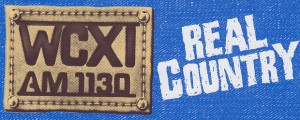 Some critics cite the lack of commercials as one reason WWWW trampled the competition in the ratings this time out. “Our commercial load was light,” Hallam admits. “But the music we play keeps people listening. Some critics say country music is doing well because it’s on FM. I feel it’s a hindrance rather than an advantage. In the North, in New York, Chicago, Los Angeles, Cleveland, AM bested FM in country. FM started to beat AM in the South two or three years ago.”
Some critics cite the lack of commercials as one reason WWWW trampled the competition in the ratings this time out. “Our commercial load was light,” Hallam admits. “But the music we play keeps people listening. Some critics say country music is doing well because it’s on FM. I feel it’s a hindrance rather than an advantage. In the North, in New York, Chicago, Los Angeles, Cleveland, AM bested FM in country. FM started to beat AM in the South two or three years ago.”
Subtle differences give a station the edge over competition, Hallam’s convinced. Updating spots, making them sound immediate, encouraging deejays to talk conversationally, and convincing listeners that the station has a family orientation are some of the things that give him that edge.
Hallam feels the evolution of a new artists should be through small and medium stations, with little or no competition. “In a big city station, you’ve got competition. People would rather hear Kenny Rogers than some Joe Blow. We play the hits. We make the hits, too. Because WWWW played it, Joe Dolce’s ‘Shaddap Your Face’ sold over 400 copies at one Harmony House outlet. We watch smaller markets, sales, make call outs. Sylvia, Charly McClain, Freddie Raven were added because they were doing so well wherever they played.”
Promotion, both on the air and through concert tie-ins, is a big element in WWWW’s sudden success. Hallam tries to get a guest deejay appearance anytime somebody comes to town.
“Last week we had Alabama, Charly McClain and Ronnie McDowell. I try to get ’em to sound like real DJs — so if people don’t like a particular artist, they’ll listen anyhow. The guest artists talk right up to the lyric, play music beside their own. We try to get a taped promo from everyone who’s coming to town. I’ll go just about any length to get it, too. For Razzy Bailey, we had to set up a three-way conference call at 3:30 in the morning. But we got it.”
On the air promotions include concert ticket giveaways, prize-contests, many tied in to Pine Knob and Meadowbrook concerts. “We try to think of the whole family,” Hallam says. “We’re in the middle of of ‘106 Days of Summer’ right now. If you win a pair of tickets in a giveaway, the DJ will ask if you got kids. If you do, you don’t have to hire a sitter. . . . we’ll throw in the extra tickets so you can take them too.”
“The twang’s out of country. The western’s out of country and western. There’s no similarity between Eddie Rabbit and Hank Williams, Jr., only an evolutionary tie. WWWW doesn’t play much music older than the ’70s. Music wasn’t that well recorded before then, and especially when it comes to country music from decades ago, and stereo makes it sound even worse.”
“We try to play what people would like us to play for them. I don’t kid myself that WWWW is the only station our listeners tune in. I want to get more service on the air, increase our library, get out in the community more. Right now, I’m programming totally on gut feel. If the announcers can’t execute, the ideas are wasted. The jock is the liaison between listeners and the program director. The jock’s job is to entice the listeners to listen a little bit more than they would left to themselves.”
“I’ve never worked at any station that’s adult targeted, that’s as busy with requests as WWWW,” Hallam claims. “We went on Joe Dolce’s new single, ‘Ain’t No UFO Gonna Catch My Diesel’ right out of the box and the phones are just burning up with requests.”
“I change the rotation weekly, and rest a song when it comes off the playlist rotation. The entire staff here is dedicated in going the extra yard. There are too many 9 to 5 program directors (and other radio people) in the world. The answer to our hard work is in the ratings.” END
___
(Information and news source: Billboard; August 22, 1981)
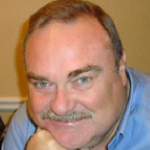
A MCRFB Note: According to the Country Radio Broadcasters website (www.crb.org/), Dene Hallam began his country radio career as program director on Harrisburg, Pennsylvania’s WFEC in 1977. His country radio resume reflects he made stellar career advances while programming New York’s first Country station, WKHK, as well as WWWW in Detroit, New York’s WHN, KKBQ in Houston, San Francisco’s KYCY, WKHX in Atlanta and WDAF in Kansas City. Hallam returned to Atlanta in 2007, serving as program director for the ‘Moby in the Morning’ network until his death in 2009. He was 54.
Dene Hallam held the distinction being one of only two programmers to win Billboard’s Program Director of the Year in two different formats, Country and Top 40. While at KKBQ in Houston in 1995, Hallam won the coveted Billboard PD of the year award for Country. For more information on Dene Hallam’s passing, go here.
![]()
HAVE A COOL WEEKEND
WOO HOO IT’S FRIDAY
FALL IS HERE / HAPPY THURSDAY
REMEMBERING ANDY WILLIAMS
![]()
ANDY WILLIAMS DIES AT 84, LOSES BATTLE WITH BLADDER CANCER
 From current MCRFB NEWS wires 2012
From current MCRFB NEWS wires 2012
Emmy-winning TV Host and ‘Moon River’ Crooner Died Tuesday Night, September 25
By Los Angeles Times Staff | September 26, 2012; 7:47 a.m.
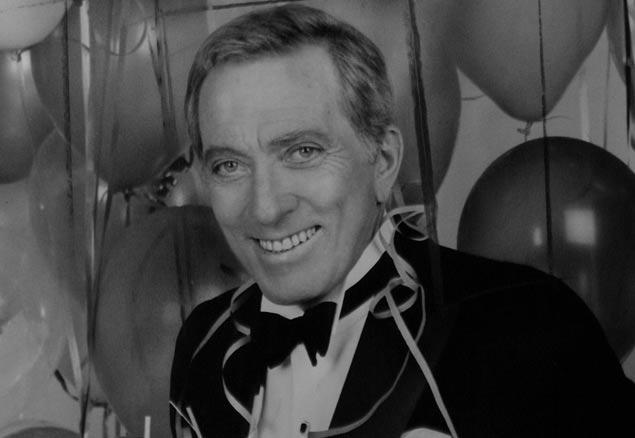
LOS ANGELES — Andy Williams, whose soothing baritone and relaxed performing style made him one of America’s top pop vocalist and a popular TV variety-show host in the 1960s when he recorded hits such as “Moon River” and “Days Of Wine And Roses,” has died. He was 84.
Williams, who announced in late 2011 that he had been diagnosed with bladder cancer, died Tuesday at his home in Branson, Mo., his family announced.
The Iowa-born Williams began singing professionally as a boy in with his three older brothers in the 1930s, and he went solo when the quartet broke up in the early ’50s.
After becoming a regular featured singer on Steve Allen’s “Tonight” show in 1954, Williams had hits with songs such as “Canadian Sunset,” “Butterfly,” “Are You Sincere,””Hawaiian Wedding Song” and “The Village Of St. Bernadette.”
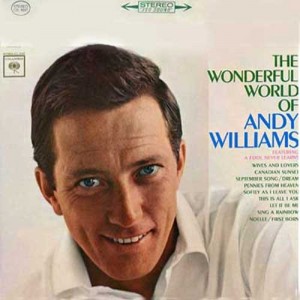 He continued to turn out hits in the 1960s and ’70s, including “Can’t Get Used To Losing You,” “Dear Heart,” “Charade,” “Music To Watch Girls By” and “(Where Do I Begin) Love Story.“
He continued to turn out hits in the 1960s and ’70s, including “Can’t Get Used To Losing You,” “Dear Heart,” “Charade,” “Music To Watch Girls By” and “(Where Do I Begin) Love Story.“
The singer hosted “The Andy Williams Show” on NBC from 1962 to 1967. After doing three specials a year for two years, he returned to the weekly series from 1969 to 1971.
“The Andy Williams Show” won three Emmy Awards, and its casual, sweater-wearing host received two Emmy nominations.
“In some cases, people who go on television, their record sales drop off; mine seemed to go up,” Williams told the Orlando Sentinel in 1991.
“I think it’s because the music is kinda soft and easy and it’s not jamming down anybody’s throat. It’s just there and people find it pleasant and they go out and buy the albums.”
“The Andy Williams Show” featured established entertainers such as Bing Crosby, Ella Fitzgerald, Jonathan Winters and Phyllis Diller as well as newer talents such as Linda Ronstadt, the Mamas and the Papas, Elton John and the Jackson 5.
Williams also regularly featured the Osmond Brothers, who were initially billed as “a youthful barbershop harmony group from Ogden, Utah” when they debuted on the show in 1962.
A popular feature of Williams’ TV program was the annual Christmas show, on which he would be surrounded by his family members.
So popular were the Christmas shows that when the weekly series went off the air, Williams told the Chicago-Sun Times in 2000, “we got thousands of pieces of mail” asking him to come back, which he did by hosting annual Christmas TV specials for many years. He later did Christmas shows in theaters around the country as well.
Williams said he never tired of singing “Moon River,” whose melody he considered “beautiful” and whose lyrics he viewed as “timeless.”
“You wouldn’t believe how ‘Moon River’ became a hit,” he said in a 1989 interview with the Chicago Tribune. “I was having dinner with (songwriters) Henry Mancini and Johnny Mercer, who had just finished recording the movie, ‘Breakfast At Tifanny’s,’ with Audrey Hepburn singing ‘Moon River’ out on the balcony with a guitar.
“So Mancini and Mercer played this song for me, which I thought was great. But my record company was really into singles then, and they said: ‘I don’t think phrases like ‘my Huckleberry friend’ will make it with the kids — they won’t know what it means.”
But about four weeks before the 1962 Academy Awards program, he recalled, “I was invited to sing ‘Moon River’ on the Oscars show, and so Columbia Records decided we ought to rush a ‘Moon River’ album into the stores, because that song looked like a shoo-in for the ‘best song’ Oscar.
“So they quickly put out an album, had it in the stores on the day of the Oscars, and the next morning it sold 500,000 copies.”
The son of a railroad mail clerk, Williams was born December 3, 1927, in Wall Lake, Iowa. As a boy, he began singing with his three older brothers — Bob, Don and Dick — in the local Presbyterian church choir.
“The very first time he heard his four sons harmonize together, my dad became a man with a dream and a mission in life, convinced we had a future as professional singers,”Williams wrote in his 2009 memoir “Moon River And Me.”
With their father as their manager and “driving force,” the Williams landed a 15-minute show every weekday morning on radio WHO in Des Moines in 1936 when he was 8.
In 1941, the family moved to Chicago, where the Williams brothers began singing on the popular “National Barn Dance” on WLS Radio, for which they also did a weekday morning show.
The family later moved to Cincinnati, where the Williams Brothers did a morning radio show on WLW and made guest appearances on the station’s other programs. In early 1944, after two years in Cincinnati, the family headed west.
In Hollywood, the Williams Brothers got two big breaks: Bing Crosby hired them to do the backing vocals on his 1944 vocal hit, “Swinging On A Star” and MGM signed them to a contract. They appeared in a half a dozen forgettable movies, including “Kansas City Kitty.”
In 1947, the Williams Brothers teamed with singer comedienne Kay Thompson to form a critically acclaimed nightclub act that toured the country for a number of years. The Williams Brothers split up in 1953.
After 2 1/2 years as a regular on Steve Allen’s “Tonight” show, Williams hosted summer replacement variety series in 1957, ’58 and in ’59, before launching his long-running NBC variety show in 1962.
In 1961, he marries Paris-born Claudine Longet, then a young Las Vegas dancer, with whom he had three children, Noelle, Christian and Bobby. Bobby was named after their close friend, Bobby Kennedy.
Williams and Longet were divorced in 1975. When Longet was charged in 1976 with the shooting death of her boyfriend, skiing champion Vladimir (Spider) Sabich, Williams offered her his support.
He later said he received only positive feedback for publicly supporting his ex-wife, who claimed the pistol went off by accident. She was found guilty of criminally negligent homicide, a misdemeanor, and sentenced to 30 days in jail in 1977.
Williams was the first performer to headline Caesar’s Palace in Las Vegas when it first opened in 1966, and he remained a headliner there for two decades.
Williams’ survivors include his second wife, Debbie; his three children, Robert, Noelle and Christian; six grandchildren; and brothers Don and Dick. His sister Jane and brother Bob have passed on.
___
(Article was edited and condensed; article appeared in the Los Angeles Times, Wednesday, September 26, 2012)
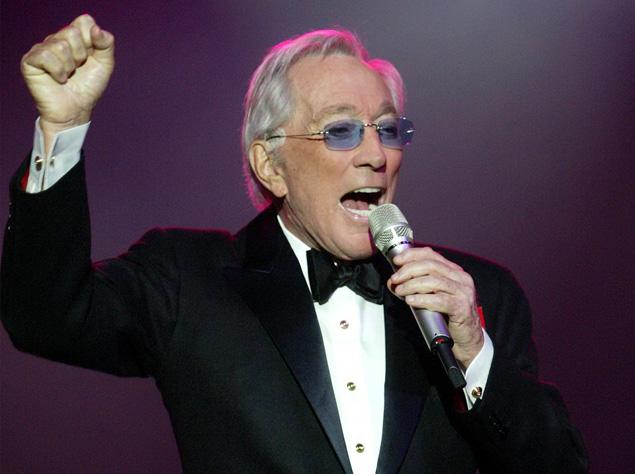
http://www.youtube.com/watch?v=jsAvKS1GD6Q&feature=related
![]()










